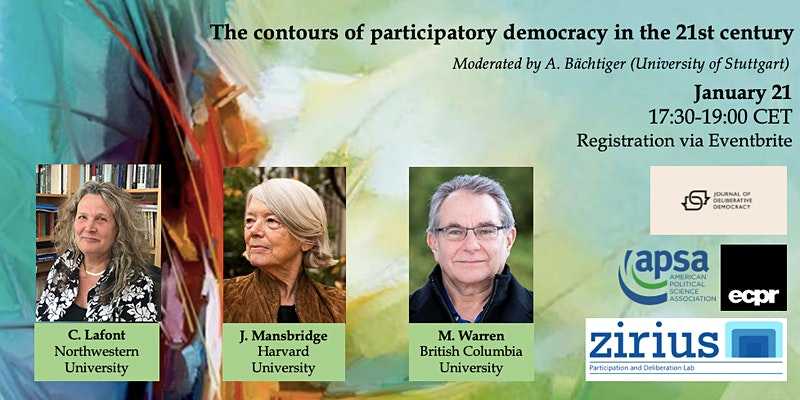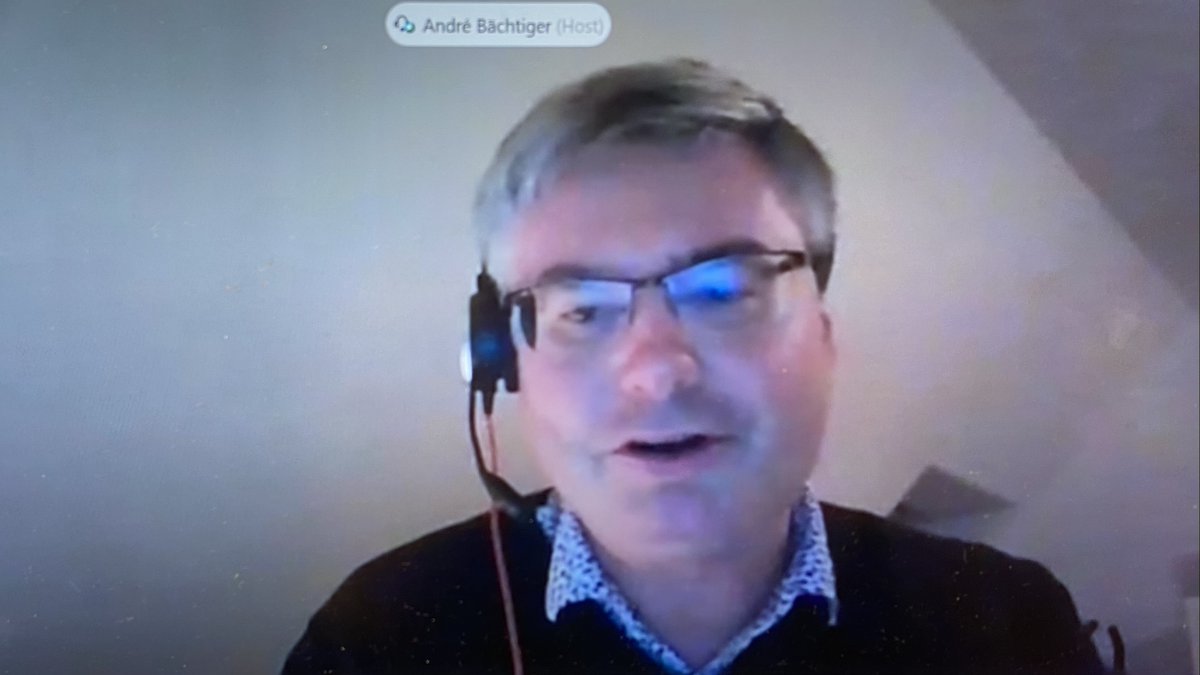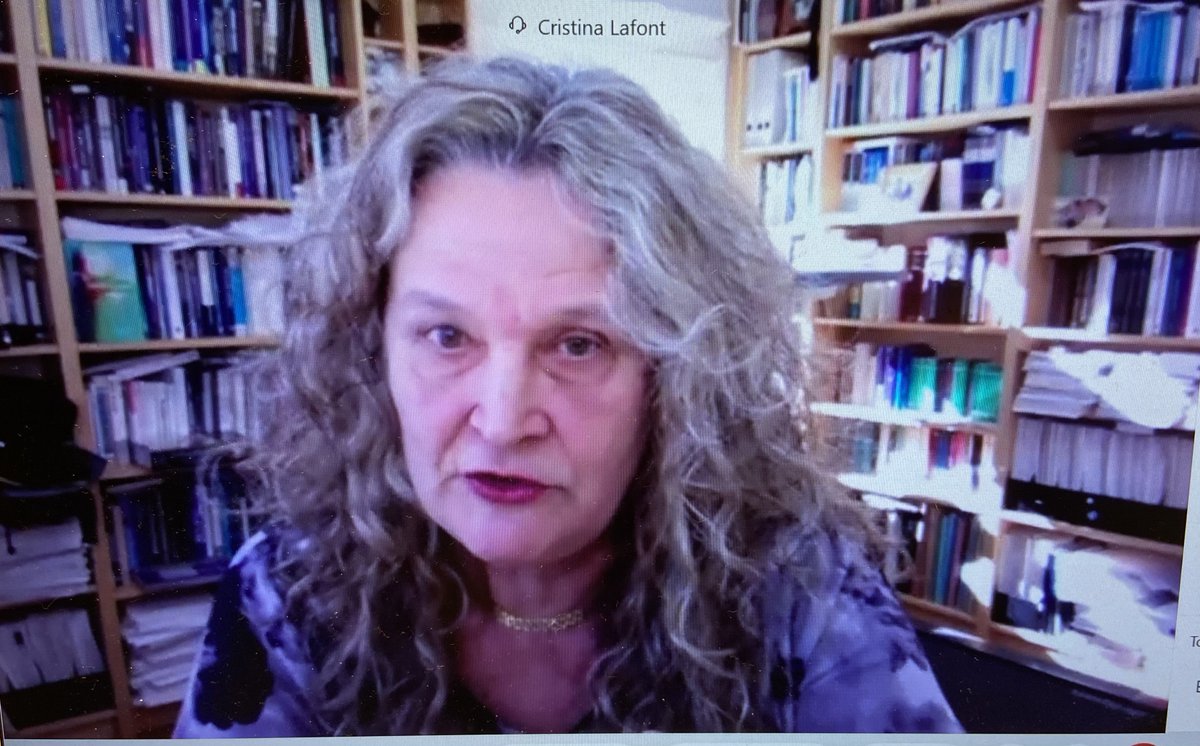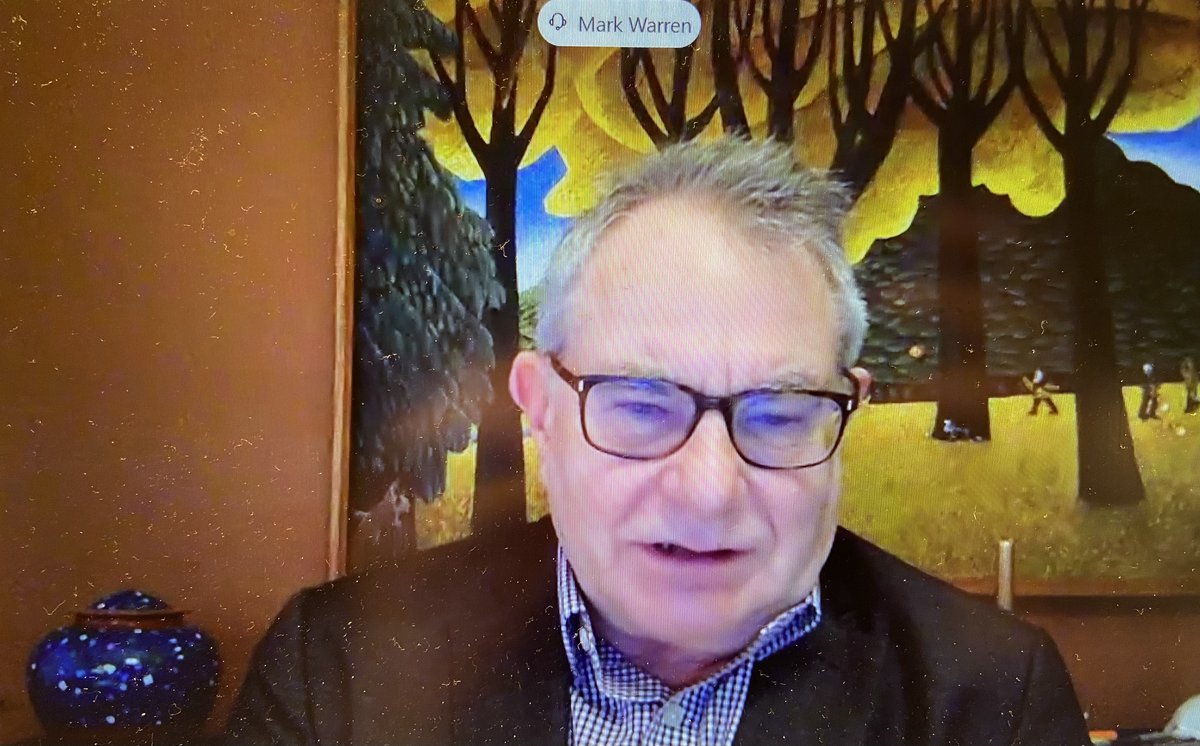WE'RE ABOUT TO START! Welcome to our first event of 2021. This event is based on our Special Issue on Democracy without Shortcuts. You can read the SI here: https://delibdemjournal.org/32/volume/16/issue/2/ and a short summary here: https://www.publicdeliberation.net/
Journal editor @AndreBaechtiger challenges Cristina Lafont, Jane Mansbridge and Mark Warren to describe how participatory democracy in the 21st century should look like, esp after the insurrection and inauguration in the United States.
For Lafont, political alienation is the main issue of democracy today. Citizens cannot identify with decisions affect their lives. Citizens should be able to exercise democratic control. Are minipublics the answer? Aren't they new shortcuts?
For Mansbridge, we need more use of random selection for citizen deliberation and better mechanism for recursive representation between citizens and their representatives. We need more collective solidarity, collective commitment to duty, and, indeed, state coercion.
For Mark E. Warren, democracies should empower inclusions, they should support and organise deliberation, and facilitate mechanisms for collective decision making. Democracy is in trouble if it cannot fulfil these functions.
How useful are minipublics in addressing white supremacy? For Warren, minipublics, by virtue of random selection, can invite less motivated reasoners, those who are less intensely involved in an issue. Minipublics can potentially depolarize anger.
For Lafont: Minipublics tend to be top-down. There's no opportunity for citizens to set the agenda. It's academics and governments who get to set the terms. Can we have citizen-initiated minipublics? ( @RCrombrugge has an answer in our SI: https://delibdemjournal.org/articles/10.16997/jdd.402/)
Mansbridge discusses how citizens' assemblies in Bogota overcome Lafont's critique: multi-staged assemblies. One assembly sets the agenda, another assembly deliberates on the topic.
Mark Warren responds to accusation that minipublics are elitist and technocratic. There are minipublics convened to respond to advocacy and lack of representation.
If you think that public scrutiny is central to democracy, then you are a deliberative democrat, according to Cristina Lafont.
How can we re-enliven deliberative democracy in parliaments? For Mansbridge, we deliberative creativity in private chambers, and transparency in the public debates.
What do we do when politicians do not trust the people to engage in minipublics, asks Mark Warren. There's evidence that politicians do get impressed by the process and outcomes of minipublics. Worth exploring how political elites can be incorporated in minipublics.
A big thank you to everyone for joining our first event of 2021. Here's the link to our Special Issue https://delibdemjournal.org/articles/ and a short summary by @JVrydagh https://www.publicdeliberation.net/democracy-without-shortcuts/.
Watch this space for the link to the recording


Watch this space for the link to the recording




 Read on Twitter
Read on Twitter




